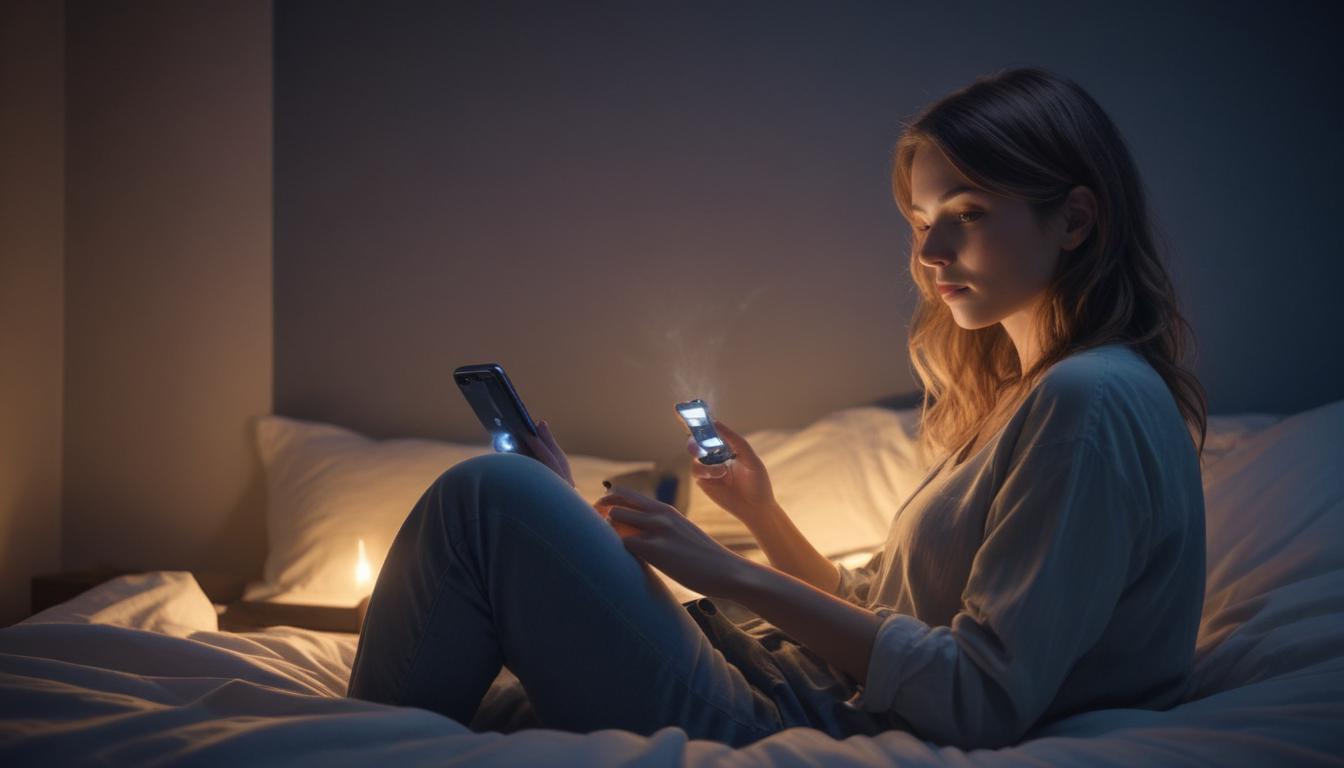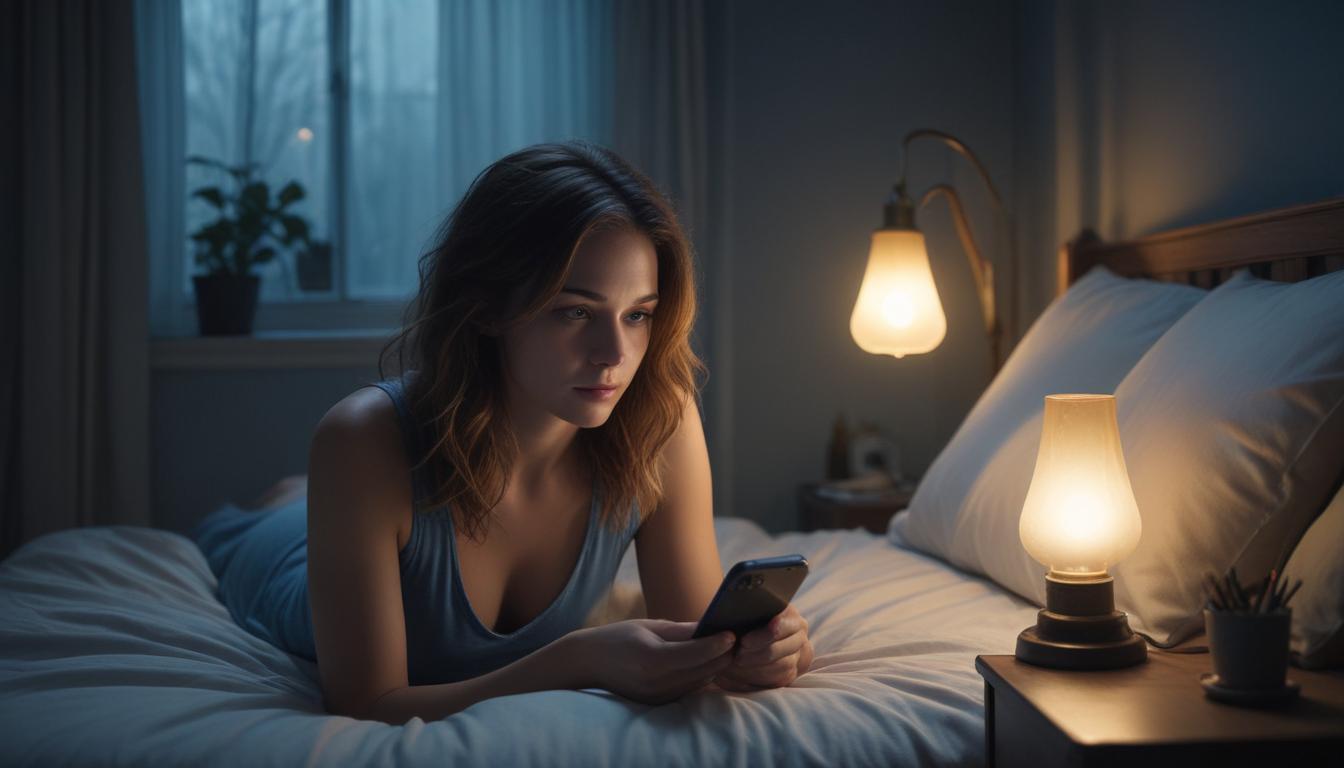Now Reading: Unlock Well-being with a Digital Detox
-
01
Unlock Well-being with a Digital Detox
Unlock Well-being with a Digital Detox

The Benefits of Digital Detox Unplugging for Well-being
Does the first thing you reach for in the morning and the last thing you see at night glow with a blue light? Do you feel a phantom buzz in your pocket even when your phone isn’t there? You’re not alone. In our hyper-connected world, the constant stream of notifications, emails, and social media updates can leave us feeling drained, anxious, and perpetually distracted. This digital fog clouds our focus, strains our relationships, and quietly steals our peace of mind.
The solution isn’t to throw your devices away. It’s about consciously and intentionally stepping back. A digital detox is a period of time during which you voluntarily refrain from using electronic devices like smartphones and computers. It’s an act of empowerment and self-care, allowing you to unplug from the constant noise and reconnect with yourself and the world around you. By taking a deliberate break, you can reap profound benefits that impact your mental, emotional, and physical health in incredibly positive ways.
Why We Desperately Need to Unplug
Our brains are not designed for the relentless stimulation that modern technology delivers. Every like, share, and notification provides a small hit of dopamine, a chemical linked to reward. This creates a powerful feedback loop that keeps us coming back for more, slowly eroding our ability to concentrate on a single task. This constant context-switching fragments our attention, making deep work, meaningful conversation, and even simple relaxation feel nearly impossible.
This digital overload has a significant impact on our mental well-being. Social media platforms often become highlight reels of others’ lives, leading to a cycle of social comparison and inadequacy. The fear of missing out (FOMO) can trigger anxiety, while the pressure to be always available contributes to chronic stress and burnout. Unplugging is no longer a luxury; it has become a necessary practice for preserving our mental clarity in a demanding digital age.

The Transformative Benefits for Your Mind and Body
Embarking on a digital detox is one of the most effective investments you can make in your overall well-being. The initial moments might feel strange as you break the habit of reaching for your phone, but this is quickly replaced by a sense of calm and clarity. A detox can fundamentally rewire your relationship with technology, making you a more intentional and mindful user long after the break is over. You move from being a reactive consumer of content to a proactive creator of your own experiences.
This journey is about what you gain, not what you lose. You gain time that was previously lost to mindless scrolling. You gain the mental space to think deeply and creatively. You gain the opportunity to be fully present in your own life, to notice the small details of your day, and to engage more meaningfully with the people you care about. It’s a powerful shift that allows you to experience life directly, rather than through a screen.
Reclaim Your Mental and Emotional Peace
One of the most immediate benefits of a digital detox is a noticeable reduction in stress and anxiety. When you’re not constantly bombarded with notifications and the pressure to respond, your nervous system gets a chance to relax. You break free from the cycle of comparison and the anxiety it fuels. This mental quiet allows you to tune into your own thoughts and feelings, leading to greater self-awareness and emotional stability.
Furthermore, unplugging is a powerful remedy for poor sleep. The blue light from our screens suppresses melatonin, the hormone that regulates sleep. By putting away your devices at least an hour before bed, you allow your body’s natural sleep processes to take over. This results in deeper, more restorative sleep, allowing you to wake up feeling genuinely refreshed and energized.
Sharpen Your Focus and Boost Creativity
In a world of constant digital distraction, the ability to focus is a superpower. A digital detox is like a training camp for your attention span. By removing the endless interruptions, you allow your brain to re-learn how to engage in “deep work”—the state of focused concentration that leads to high-quality results. Your ability to think critically, solve complex problems, and retain information improves dramatically.
Creativity flourishes in the absence of constant input. When we fill every spare moment with scrolling, we rob ourselves of the essential gift of boredom. It is in these quiet, unstructured moments that our minds wander, make new connections, and generate new ideas. A digital detox creates the mental space necessary for inspiration to strike, whether it’s solving a work challenge or simply seeing the world from a fresh perspective.
How to Start Your Digital Detox Journey
The idea of a digital detox can feel intimidating, but it doesn’t have to be an all-or-nothing challenge. The goal is progress, not perfection. Starting small is the key to creating a sustainable, healthier relationship with your technology. Be kind to yourself during this process; breaking powerful habits takes time and effort, but the rewards of greater peace and presence are well worth it.
Begin by identifying your biggest digital pain points. Is it mindless scrolling on social media in the evening? Is it checking emails the moment you wake up? Pinpointing these habits is the first step toward consciously changing them. Approach your detox with a sense of curiosity, viewing it as an experiment in discovering what works best for you.
Set Clear and Achievable Boundaries
Instead of attempting a week-long detox right away, start with small, manageable changes. Institute a “no phones at the dinner table” rule to encourage conversation. Designate the first and last hour of your day as a screen-free zone to start and end your day with intention. Go into your phone’s settings and turn off all non-essential notifications; you’ll be amazed at how much calmer you feel.
Once you’re comfortable, try a mini-detox. Choose a specific block of time, like a Sunday afternoon or a full 24 hours, and commit to putting your devices away. Inform friends and family that you’ll be unreachable for a short time. These shorter breaks prove that you can not only survive without your devices but thrive in the offline world.
Rediscover Analog and Real World Joy
A successful digital detox requires replacing the digital habit with a fulfilling analog activity. This is your chance to rediscover simple pleasures. Pick up that physical book that’s been on your nightstand. Go for a long walk in nature without headphones. Dust off an old hobby like painting, playing an instrument, or gardening.
Focus on nurturing your real-world connections. Instead of sending a text, call a friend to hear their voice. Instead of scrolling through photos, schedule a coffee date to catch up in person. The depth of face-to-face interaction is something digital communication can never fully replicate. By unplugging from your devices, you create the space to plug back into the most important thing of all—your life.




































